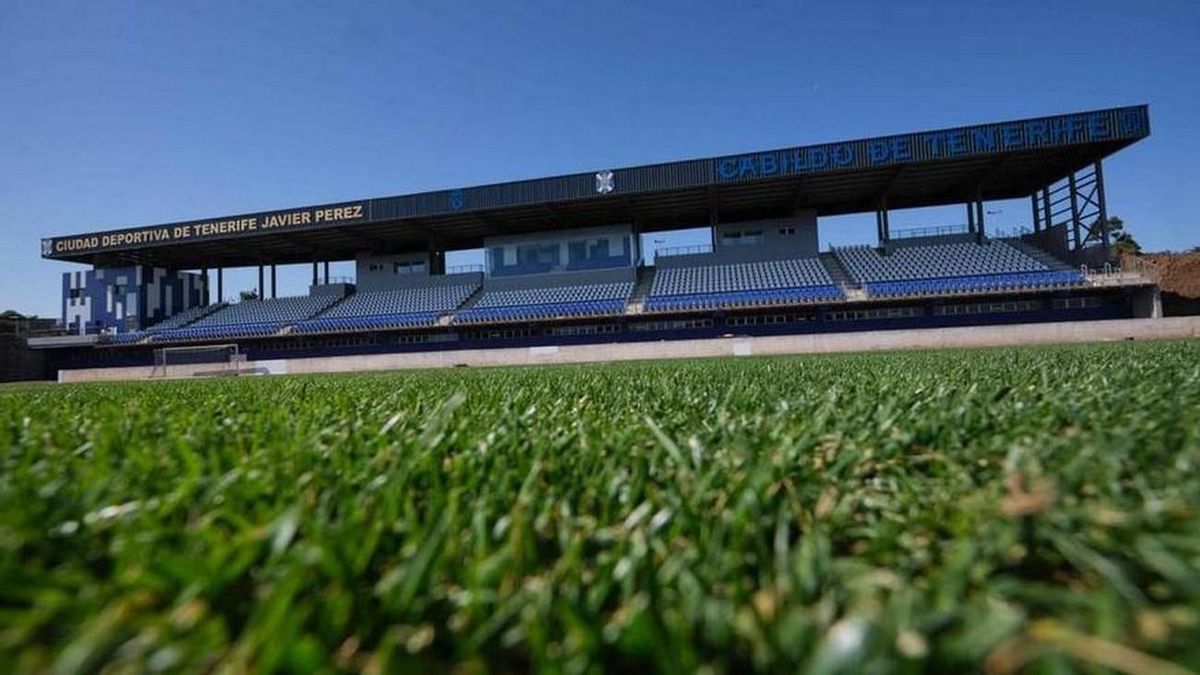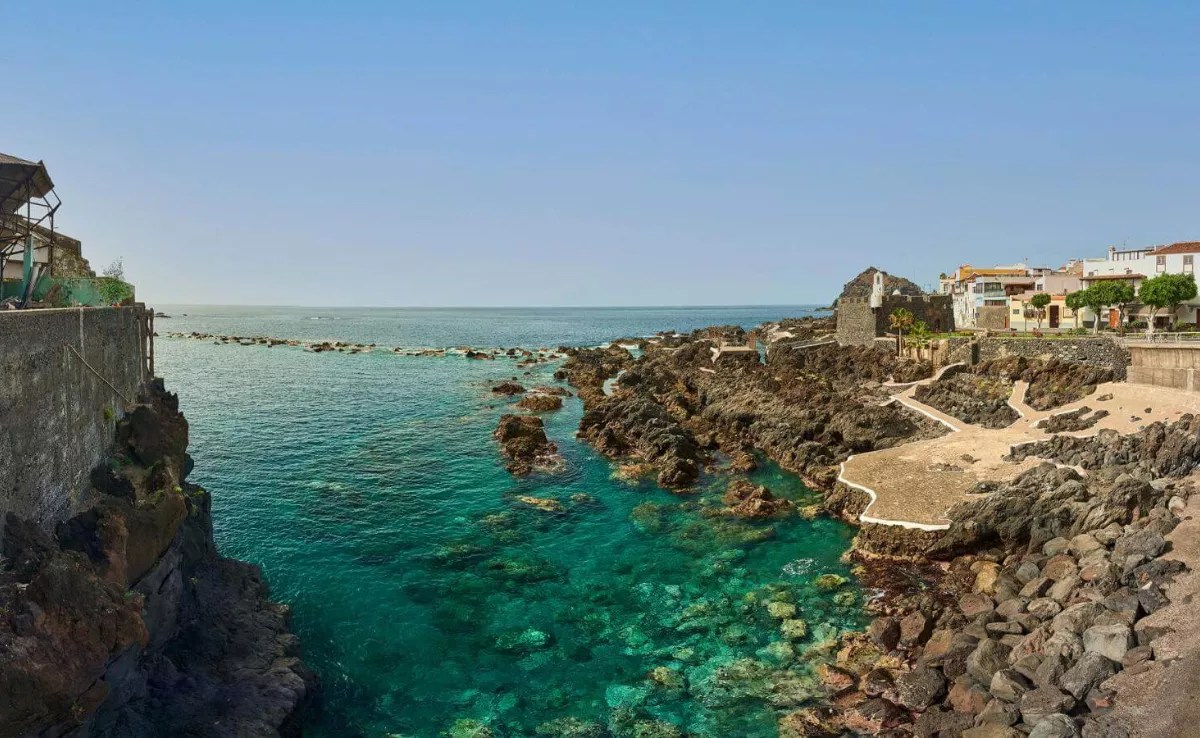Gran Canaria embraces the 2030 World Cup. The Spanish Football Federation (RFEF) announced on Friday the list of candidate stadiums to host matches in Spain for the 2030 FIFA World Cup. The Siete Palmas Stadium, which will undergo a new renovation funded by the Cabildo costing around €106 million, is included among the eleven venues that will definitely host World Cup matches.
Just last Thursday, the island corporation confirmed that they are in search of the best teams of architects for the complete renovation of the stadium and will organize an international competition for the drafting of the project and construction management, with a budget of €5.68 million, which will make the Gran Canaria sports complex the iconic landmark of the island for the 21st century.
[–>
The candidate stadiums for the World Cup
[–>
Thus, the stadiums that will be part of the ‘Bid Book’ or candidacy book are:
- Anoeta (Donostia-San Sebastián)
- Camp Nou (Barcelona)
- Gran Canaria (Las Palmas)
- La Cartuja (Sevilla)
- La Rosaleda (Málaga)
- Metropolitano (Madrid)
- Nueva Romareda (Zaragoza)
- RCDE Stadium (Barcelona, Cornellá-El Prat)
- Riazor (A Coruña)
- San Mamés (Bilbao)
- Santiago Bernabéu (Madrid)

Javier Pérez Sports City, in Tenerife. / ED
Tenerife as a host city
[–>
A total of 45 Team Base Camps or TBCs have been determined to be proposed in the official dossier. These base camps will distribute the passion for football and the benefits of the World Cup, in different areas, throughout the national territory, with their main function being the training base for one of the participating teams. In this list, among others, the Javier Pérez Sports City in Tenerife is included.
The complete list is as follows, ordered by location provinces:
- Ciudad Deportiva José Luis Compañón – Ibaia (Vitoria-Gasteiz, Álava)
- Ciudad Deportiva Andrés Iniesta – Albacete Balompié (Albacete)
- Ciudad Deportiva Camilo Cano (La Nucía, Alicante)
- Nueva Ciudad Deportiva del Elche (Elche, Alicante)
- Villaitana Football Center (Benidorm, Alicante)
- Power Horse Stadium + Anexo (Almería)
- Estadio Francisco de la Hera + Ciudad Deportiva (Almendralejo, Badajoz)
- Ciudad Deportiva del Viejo Vivero + Estadio Nuevo Vivero (Badajoz)
- Barceló Montecastillo Golf & Sports Resort (Jérez de la Frontera, Cádiz)
- Barceló Costa Ballena Golf & Spa (Rota, Cádiz)
- Fairplay Golf & Spa Resort (Benalu-Casas Viejas, Cádiz)
- Ciudad Deportiva Javier Pérez – CD Tenerife (Tenerife, Canarias)
- Instalaciones Nando Yosu 1 y 2 (Santander, Cantabria)
- Ciudad Deportiva Jose Manuel Llaneza (Villarreal, Castellón)
- Ciudad Deportiva Rafael Gómez (Córdoba)
- Nueva Ciudad Deportiva Girona FC (Girona)
- Torremirona Relais Hotel Golf & Spa (Navata, Girona)
- Camiral Golf & Wellness – Football School de la Vinya (Caldes de Malavella, Girona)
- Ciudad Deportiva del Granada CF (Granada)
- Nueva Ciudad Deportiva Eibar (Eibar, Guipúzcoa)
- Estadio Palladium Can Misses + Anexo (Ibiza, Islas Baleares)
- Ciudad Deportiva Antonio Asensio – RCD Mallorca (Palma de Mallorca, Islas Baleares)
- Ciudad Deportiva UD Logroñés (Logroño, La Rioja)
- Estadio Municipal El Toralín + Anexo (Ponferrada, León)
- Ciudad Deportiva Fernando Santos de la Parra (Getafe, Comunidad de Madrid)
- Ciudad Deportiva Fundación Rayo Vallecano (Madrid)
- Instalación Deportiva Butarque C.D. Leganés (Leganés, Comunidad de Madrid)
- Ciudad Deportiva del Real Madrid (Madrid)
- Estepona Football Center (Estepona, Málaga)
- Marbella Football Center (Marbella, Málaga)
- Estadio Romano Jose Fouto + Campo Diocles
Football Training Facilities in Spain for World Cup 2030
Football training facilities across Spain are being considered as sub-headquarters for the World Cup 2030. The proposed locations span across various regions, from Madroa in Vigo to La Manga in the Murcia region. A total of 16 autonomous communities in Spain could host these facilities, including Andalusia, Catalonia, and the Valencian Community.
The final decision on the selection of these sub-headquarters rests with the participating teams of the World Cup 2030, following a direct evaluation process by FIFA.
With both headquarters and sub-headquarters, all autonomous communities in Spain will play a part in this global event, bringing forth positive impacts such as job creation, infrastructure development, tourism promotion, foreign investment attraction, and the evolution of the sports industry.
Confirmation on December 11
After the dossier presentation, FIFA will announce on December 11, during its General Assembly, the joint candidacy of Morocco, Portugal, and Spain for World Cup 2030. Subsequently, the final selection of host venues will be determined.
The Spanish Football Federation (RFEF) extends its gratitude to all institutions involved in this process, including territorial federations, government bodies, local authorities, clubs, and individuals for their efforts over the past months.
















